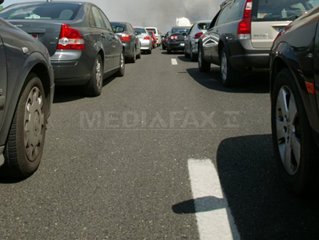www.zfenglish.com - Last update 13:53
Romania Risks EU Sanctions Unless It Refunds Car Tax - Experts
05.29.2011
Romania risks sanctions from the European Union, from a potential infringement procedure, and a great number of suits brought on by car owners, unless the government urgently changes the car tax and repays the funds it collected.
This warning was sent to the Executive by legal experts within the Ministry of Justice, who have studied the car tax issue on the request of Prime Minister Emil Boc, says a government document obtained by MEDIAFAX.
The experts explain that the suits on the compatibility of Government Emergency Ordinance 50/2008 on the car tax and community law have come about due to significant legislative instability, as the ordinance has been amended seven times in two years. The Court of Justice of the European Union (CJEU) ruled that the tax, in its initial form, indirectly discriminated against imported cars and cars already registered in Romania when the tax was implemented, July 1, 2008.
They also point out that this discrimination was kept in the ordinance's subsequent versions, meaning it is only a matter of time before these acts are ruled in violation of community law as well.
The experts warn the Government that failure to take legislative action regarding the car tax means the state will be forced by the courts to repay the tax, plus interest and court expenses, and the European Commission might order pecuniary sanctions.
They advise the Executive to issue an emergency ordinance refunding the tax, lest it be required to also pay interest and court costs. According to the experts and CJEU jurisprudence, three to five years are considered a reasonable timeframe to refund the tax.
As regards the impact on court activity, the experts warn that, as the CJEU ruling receives increasing media attention, Romanian courts might be bombarded with a large number of new suits brought on by people who paid the car tax in its initial form, including those whose previous court action has been rejected. To avoid jamming the courts with this issue, the Government should take steps to refund the tax collected via emergency ordinances in disagreement with EU law.
The current car tax system will be changed, following a CJEU judgment which found the tax in violation of community legislation, as it discourages the sale of used cars from other states to Romania.
The judgment was issued in response to a question by a Romanian court hearing the case of a Romanian national who bought a used car from Germany in July 2008. He paid the pollution tax when registering the car in Romania and complained that it is charged only on imported used cars and not other used cars already registered in the country and then resold.
To clarify such situations, the Government has drafted several versions of the tax.
One version says the car pollution tax will be charged upon the first sale of cars already registered in Romania when the tax was introduced (July 2008), but reduced by 30%.
Another version considered by the Government says the tax would be payable for cars already registered before July 2008 (with no mention of the first sale), but the tax would be lower and the difference paid as of July 1, 2008, would be refunded.
The last version analyzed by the Government entails turning the pollution tax charged upon the car's first registration into a pollution tax payable yearly by all car owners, separately from the property tax.
The Government has not yet made a decision to change the car tax, but will first draw up an impact analysis and discuss the matter within the ruling coalition, people close the matter told MEDIAFAX Wednesday.
Environment Minister Laszlo Borbely said after the Cabinet meeting the "law or ordinance" amending the car tax would be adopted next week. He added his proposition is to apply a tax upon the first sale of the cars brought to Romania before January 1, 2007, in an amount reduced by 20-30%.
Borbely said the tax cut would be applied to all cars, to avoid discrimination.
At the moment, there are more than 40,000 pending court cases concerning the pollution tax.

